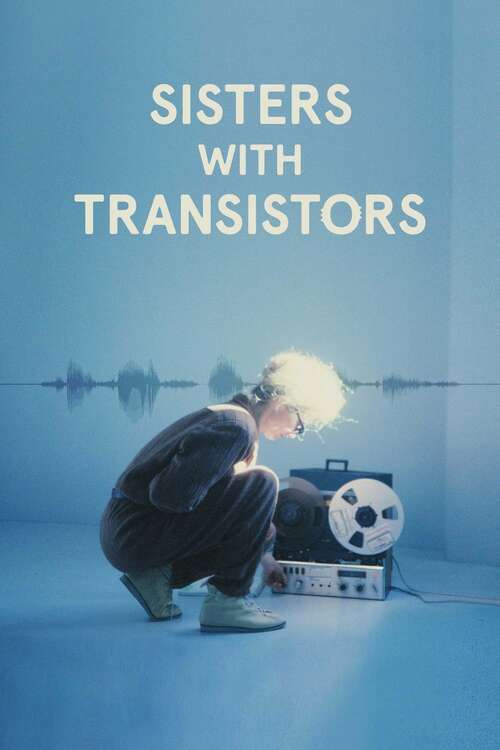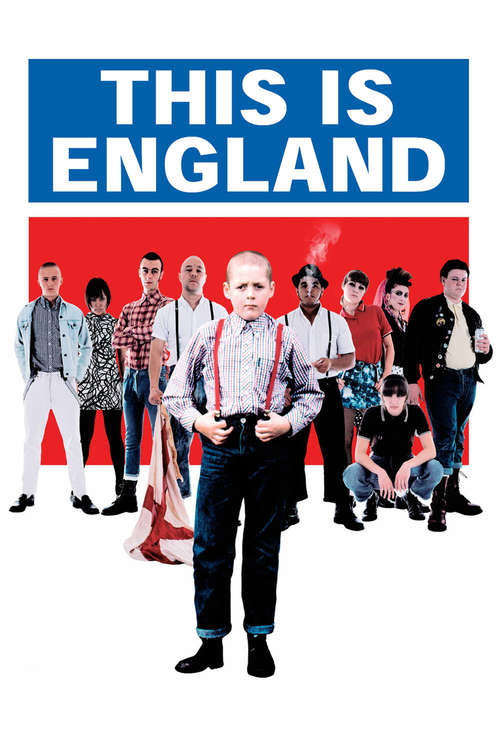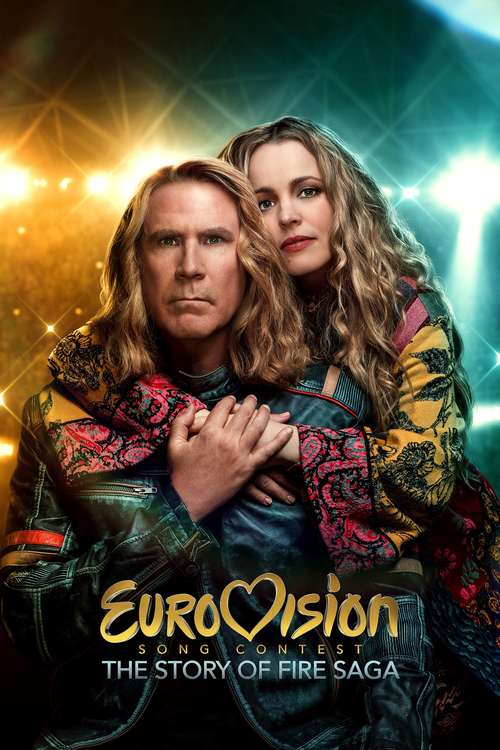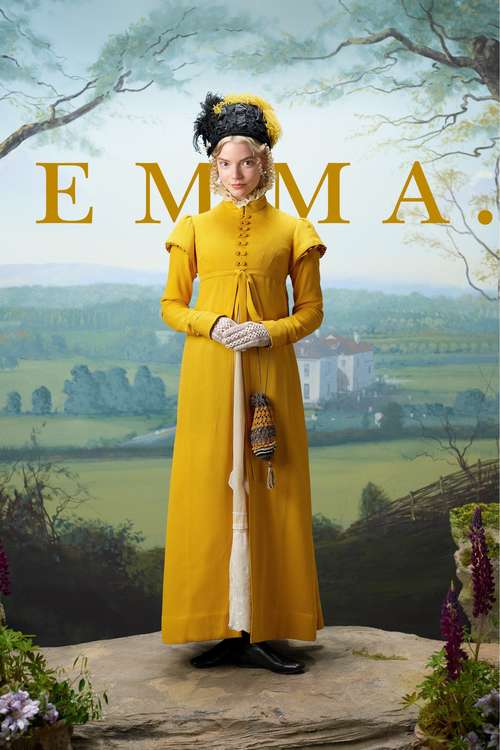Longform
That Summer Feeling
I’m sitting in the garden, writing on my iPad, and am wearing shorts for the first time this year (not counting cycling and exercising). Summer is here.
Also listening to Psychocandy. The Jesus and Mary Chain are a surprisingly summery band. Well, not that surprising, considering their surf-pop influences.
‘Feedback-strewn pop narcosis,’ as an uncredited Apple Music contributor describes ‘Just Like Honey.’
It's Never Good When a Useful Site Gets Bought
News comes out that Stack Overflow is being bought by something called Prosus. I’ve never heard of them, but they’re ‘a global consumer internet group and one of the largest technology investors in the world,’ to quote their own site.
This doesn’t bode well. Stack Overflow is without doubt the most useful site in the world, at least as far as programming and other technical matters goes. And its sub-sites cover a vast range of interests beyond the technical: use of English for both beginners and experienced people, for example; or science fiction; parenting, martial arts, the great outdoors, and a hundred more.
When a big company buys up a small one, it rarely ends well for the users of the small company’s products or services, or so it seems to me. Yahoo bought Flickr and let it largely wither on the vine.1 Similarly with Del.icio.us. Google has bought numerous properties and either rolled them into its own products, or abandoned them.
In this case the purchaser is not a technology company itself, but just a holding company. Those ones tend to result in the bought company coming under pressure to make more money. The buyer wants to recover its investment. That tends to end up with the the bought company either selling intrusive advertising space, or selling its customers’ data.
It doesn’t have to go that way. Maybe this Prosus will be different. But I can’t help thinking it’s a sad day for mutual help on the web.
-
It’s much better again now that it’s owned by SmugMug. ↩︎
Vax 2
Got my second dose of the vaccine today, just about an hour and a half ago. Down to a local pharmacy, fifteen minutes early for my appointment, and home before my actual appointment time. It was empty! Worryingly so. Why aren’t people queuing up to get their jags?

Can't Get You Out of My Head, 2021

Convention dictates that I should give a star rating to this. I’m not going to, though, because I’m not sure what it was trying to achieve. What I try to do with star ratings is judge how well, in my opinion, the film achieves what it was trying to do. I don’t claim I always manage that, but when it’s not clear what the film’s purpose was, it becomes next to impossible.
Or: you can’t reduce something as long and complex, audacious and challenging as this, to a mere zero-to-ten scale. 1
Across six films, totalling around seven hours, Adam Curtis gives us ‘An Emotional History of the Modern World,’ as the subtitle calls it. As I mentioned in my last post, Kerry Thornley of Discordian fame is interviewed early in it. That is, an interview with him is used. He’s dead, so it’s not like he was interviewed for these films. Indeed, as far as I can tell, nothing was shot for these films: the visuals are entirely comprised of library footage.
Curtis narrates over them — sometimes with quite a disconnected effect, where the images have no obvious connection to the story he’s telling. Similarly, the use of music can be quite jarring. Sometimes it’s completely relevant to the matter at hand, but often there’s no obvious connection. And the titular Kylie song is not used at all.
It’s not even that obvious why the series is called that, come to think of it. And some of the individual episode titles are even more opaque, notably the last one: ‘Are We Pigeon or are We Dancer?’ I feel sure it’s a quote, and I think it’s probably from a song, but I was alert to it turning up, and as far as I could tell, it didn’t.
OK, a quick DuckDuck gives mainly hits about the episode, but also some about a track by The Killers called ‘Human,’ which includes the line ‘are we human or are we dancer?’ So it’s probably alluding to that. Oddly that line is inspired by a Hunter S Thompson quote that I’m not familiar with, ‘We’re raising a generation of dancers.’ Which sounds pretty good to me, even if Hunter meant it critically.
Anyway, what’s this absurdly long film about?
It’s a bleak, depressing, but nonetheless compelling vision of human history, covering conspiracies and conspiracy theories, wars, revolution, surveillance capitalism, and capitalism more broadly, the tension between the collective and the individual, and a whole hell of a lot more.
But Curtis never gives a thesis statement. He never tells us, in the news journalist’s way, what he’s going to tell us. Or more to the point, what conclusions he’s going to draw from what he’s going to tell us. And his style is very disjointed: he dots about in time and space, with little more to connect the dots than a ‘but’: ‘But in China…’
In that particular tic, it’s not at all unlike the postmodern games of Illuminatus!.
He does come to kind of a conclusion at the end of the two-hour-long sixth episode, but it’s not a very satisfying or convincing one. Which is fair enough, I suppose. One of the recurring thoughts is the idea that society today is too complex for anyone to understand it fully. The problem with that, that he draws our attention to, is that that understanding has caused many politicians to give up trying to change things for the better, which tends to result in burgeoning corruption.
He does end with a note of possible hope, but I think I might have to watch parts of it again to get all of the nuances.
Letterboxd supports half stars, so five stars is ten points.↩︎
Mark E Smith (Co-)Wrote a Screenplay
A screenplay by Mark E Smith, cowritten with Graham Duff? Sounds like it could have been great:
… Smith was an unexplored writer of strange fiction. Duff sums up the narrative of the film: “Essentially, the Fall are trying to record an EP at a studio on Pendle Hill, while the surrounding countryside is at the mercy of a satanic biker gang and a squad of Jacobites who have slipped through a wormhole in time.”
– John Doran, Satanic bikers, time portals and the Fall: the story of Mark E Smith’s secret screenplay
Never made, sadly, but it’s coming out as a book: The Otherwise: The Screenplay for a Horror Film That Never Was.
BSAG On Creativity
The mysterious long-time blogger known only as ‘But She’s A Girl’ has some wise thoughts on how her creative process is affected by deadlines:
What I need to remember is that it is always like this. Deadlines are a fact of life and I just have to deal with them when they come up, but the pressure they impose is temporarily disastrous for my creativity. This means that I need to have solved any problems relating to the task which require creative thought long before the suffocating fog of the deadline descends. It’s also why I sometimes go quiet on this blog for weeks at a time. It’s not that I don’t have time to write here, but more that I don’t have the mental space to play around with ideas.
– But She’s A Girl, Creativity
Winter’s Writing
David Mitchell (the novelist, not the comedian) on Italo Calvino’s If On A Winter’s Night A Traveller, which is a book I love:
I’ve never understood why writers who write on writing get charged with creative onanism when artists are allowed to paint themselves until the Rembrandts come home or a work like Young Person’s Guide to the Orchestra - music about music, right? - is fine with everyone
– David Mitchell, Enter the maze
It’s a fair point. There’s nothing wrong with a writer writing about a writer. I think the practice gets criticised because it became so common in literary fiction as to be a cliche.
The article also contains the revelation that Cloud Atlas was at least partly inspired by Calvino’s novel.
Sisters with Transistors, 2020 - ★★★★

Great look at some of the women who were the unsung originators of electronic music. Tape loops before Steve Reich, backwards tapes before The Beatles, use of feedback before The Velvets… not to mention the best TV theme tune of them all.
And all narrated by Laurie Anderson. Well worth a watch.
Troubled Blood by Robert Galbraith (Books 2021, 7)
I know, JK Rowling is a somewhat troubling figure now. When this book came out, last year, my daughter was adamant that we not buy it, because of Rowling’s anti-trans statements, and I had respected her feelings up till now; as well as having my own concerns. But… the art, not the artist, I guess? Even if I’m further enriching her by buying the art?
The truth is twofold: one, I don’t think she’s actively antithetical to trans people. She has a complex, nuanced position about various aspects of the situation, which gets blown out of all proportion on Twitter, when nuance, as it does, heads over there to die. And which, surprisingly and disappointingly for a wordsmith, she doesn’t seem able to elucidate that well.
And two, I really like the books and wanted to read it.
Furthermore, I was sick, and I had decided that I was going to treat the time on the sofa as an extension of the holiday, and not try to get back to working on the novel/dissertation till the Monday. I wanted some comfort reading, and this was what I wanted. I knew I’d rip through it in a few days, even if I was trying to work at the time. So I killed two birds with one stone.
It’s good, as ever. I don’t really understand how she makes the pages turn so fast (there are a lot of them, especially as an ebook). I did pick up a couple of typos, and some odd line break errors, which might be to do with the translation to ebook – either way, it’s very sloppy editing/proofreading by the publishers. Also some – several – places where I would have edited a line to make it better. I noticed fewer of those as the plot roared on, unsurprisingly. Which at least means I’m reading even a book like this in a more writerly fashion. Or I was at the start.
The main other weaknesses are:
- Everything comes together just a bit too tidily.
- There’s too much about some of the secondary cases the agency is working on, over and above the main one. Those can be interesting or amusing, and sure, it’s realistic that they’d have to have more than just a forty-year-old cold case to work on, over a year. But in the end they feel like padding.
- As the denouement unfolds she uses a gimmick where the characters learn or work out something, which they relate to each other, but which is not revealed to us. It’s kind of annoying, because it’s suddenly hiding info from the reader that the characters have, where earlier in the story that wasn’t happening. I think she’s done it before in some (maybe all) of the Strike novels.
But a lot of fun, anyway.
Pastieland and Getting Sick
I’ve not posted here for a while. We managed a week-long trip to Cornwall – yes! Leaving home, leaving the city, staying in a rented house. It’s almost like things are getting back to normal.
Though not quite. Mevagissey is a great wee town, but it’s far from fully open yet. Almost none of the restaurants have any outside space, what with it been squeezed in between the bottom of a steep hill and the sea, so they haven’t reopened yet. The takeaways were open, but it’s a sleepy place, and most things close early.
We stayed in Tregoney House, on the hill of the same name, which I mention here as much for my own records as anything else. Nice house, though.
We got to see family and eat pasties, fudge, and fish & chips. And visit the Lost Gardens of Heligan. It was all quite exciting, really.
Then the day after we got home, I got sick. Not Covid, I’m pleased to say, but it knocked me out for about four or five days. No writing, just some reading.
I’m all better now, though, and starting to buckle down for my dissertation. It’s due in four months time, which suddenly seems perilously short.
Bernard and the Cloth Monkey by Judith Bryan (Books 2021, 6)
This is a story of a family – especially two sisters – and things that brought them together and pushed them apart. It varies between straightforward realist events, and ambiguous, almost fantastic scenes, which may be memories, or partly memories, or a way for the character to deal with memories.
It’s part of a series that Bernardine Evaristo has curated for Penguin, called Black Britain: Writing Back, aiming to bring lost works back into publication. This one won awards back in 1997 (even though, confusingly, the copyright date is 1998). It’s been out of print since.
Worth checking out.
Ocean's Eight, 2018 - ★★★½

A fun heist romp with a slightly flat ending. And you don’t need to have seen any of the other ‘Ocean’s’ films to enjoy it.
A Dead Cat in Downing Street
This story about Boris Johnson redecorating in Downing Street is too stupid not to be a deliberate distraction. 10 Downing Street, along with 11 and others, are government buildings. Their maintenance should be paid for with government money. And since they are also places where people live, it’s not unreasonable that there should be money available for redecoration when the resident changes.
And I guess it’s also fair that the new resident can pay extra for the work, out of their own money, if they choose to do so. Any money coming from other sources would have to be declared in the Register of Members’ Financial Interests.
This is all normal. If Johnson has failed to declare contributions from his party or donors, that’s the offence. It’s pretty straightforward.
So the fact that it’s filling the headlines with leaks and all, suggests it’s a smokescreen for something else.
But what?
At the Olympic Park Again
Cycled down to the Olympic Park today. Took a few photos.
I’m writing a story at the moment – a novel, part of which will form the dissertation for my MA – which is set during the London Olympics. Nine years ago. Nine years! Anyway, the ArcelorMittal Orbit will probably play a role.
OffMail
I just got an invite/reminder email about a service called OnMail. I must have signed up to be notified when it became available. Could have been months ago: they apologise for it taking so long.
They should apologise for being bad for the email infrastructure that binds the world together.
I’m exaggerating, but only a bit. Email remains the most important thing on the internet aside from the web. Whenever you sign up for a service, or order something online, you expect to get an email confirmation.1
Without reliable email, a lot of things would fall apart.
A while back I wrote about Hey, the new email service from Basecamp. There, I was bothered by it not being based on the standard, open protocols that underlie email, at least to the extent that you can’t get your Hey email using a third-party, standard client.
OnMail seems both visually and functionally similar to Hey, and it’s got exactly the same problem.
This trend is bad for email, bad for people who use email. It should be possible to give us the kind of powerful, automated controls over our inboxes that these services offer, without stopping us from using the apps we prefer. It is possible to do that, as companies like SaneBox show.
I do not like this trend.
-
Oddly, I had this expectation confounded just today, when Birkbeck’s submissions system didn’t send me any confirmations about the pieces that I submitted for assessment. ↩︎
This Is England, 2006 - ★★★★

A gritty, realist tale of British skinheads in Thatcher times. We get the good skins — into ska, soul, and having Black friends. And then the bad ones — into ska, soul, racism, and joining the National Front.
But it’s mainly about a young boy whose dad died in the Falklands.
It’s good. Kate from Line of Duty (Vicky McLure) is in it, too. Disappointing that the Clash song of the same name is not used, but since that was released in 1985 and the film is set in 1983, it wouldn’t have made sense.
Heartburn by Nora Ephron (Books 2021, 5)
When I wrote about watching When Harry Met Sally… last year, I said that ‘Nora Ephron may be my favourite screenwriter after Aaron Sorkin, where dialogue is concerned.’ The dialogue in this novel isn’t so sparkling, but the narration is.
It’s a fictionalisation of the breakdown of her marriage to the journalist Carl Bernstein, and it’s amazing how funny she makes it, considering how painful the experience clearly was.
Seems to be her only novel, which is kind of a shame.
The strangest thing is that the woman Bernstein had an affair with is the daughter of prime minister Jim Callaghan.
Far more interestingly, though, is that, according to Wikipedia, Ephron was one of the few people who knew the identity of Deep Throat.
None of which has anything to do with the book, which you should just read.
Eurovision Song Contest: The Story of Fire Saga, 2020 - ★★★★

A great story about a competition we all grew up with, and then stopped caring about because it was endlessly uncool, and then started taking an interest in again because it was so daft and fun.
Maybe that's just me.
Anyway, this film (made with the cooperation of the European Broadcasting Union, which is the body behind Eurovision) pokes fun at the competition in all the right ways, and does it with love and a big heart.
North Star
I wrote recently about not enjoying or finishing Claire North’s 84K. In her latest blog post she lists her (improbably large) back catalogue, with notes. On 84k:
My most miserable novel ever.…The word “dystopian” has been applied to it a lot, and I’d say that’s fair.
However, she also tells us about her forthcoming Notes from The Burning Age, which sounds amazing:
To make up for just how monumentally dystopian 84K is, Notes from the Burning Age is a look at the distant future of the earth… in which we’ve got it right. We sorted our shit out, we built an environmentalist utopia of clean energy, social justice, respect for all and so on. And we did all of it partly because we really learned to love and value this beautiful, glorious planet, as well as each other, and partly because the spirits of the earth awoke, provoked by our blundering destruction, and nearly stomped us into tiny tiny bits.If you think that’s the pitch, you will be potentially surprised to know that’s just the first 50 pages, and the book is actually a cat-and-mouse espionage thriller.
She really has written an astonishing number of books, under three different names. I’ll be sure to try some of the others.
